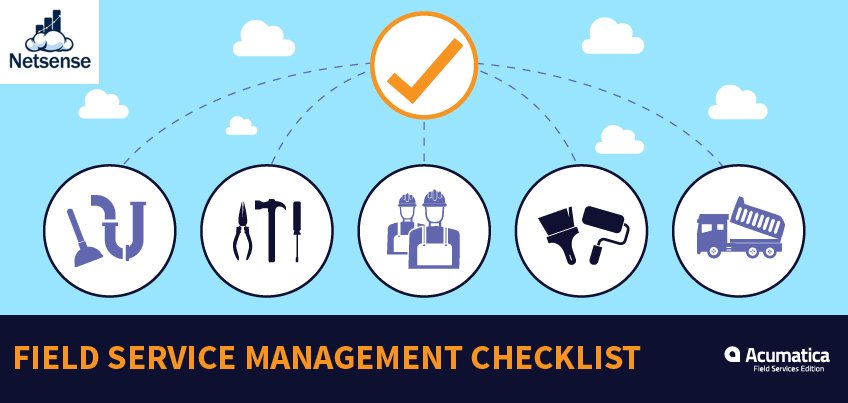On one side, you want to be accountable to bring innovation and expansion across all departments within your company. However, on the other hand, you can’t just afford to pull the trigger that leads to project failure. Especially in the field service industry, each company has different goals and needs that work primarily in office premises. Some employees working remotely have limited interaction with supervisors and team members. That’s why field service companies need optimum technology to keep everyone connected and run business processes as smoothly as possible.
It comes as no surprise that the adoption of Enterprise Resource Planning (ERP) systems has grown significantly due to its best-in-class functionality and range of customisation options to meet business needs. The ERP solution focused on field service can help in inventory management, connecting customer service, dispatching, accounting, routing, and billing, and more, everything under one seamless system. By executing cloud-based ERP software, you can have access to the company’s information in real-time that allows you to make a better decision.
Is ERP software a worthy investment for field service management? To figure out, you need to narrow down your challenges and weigh the pros of ERP to make a smart choice.
What Field Service Management Challenges You Need to Overcome?
There have been significant changes in the field service sector in the past decades, from automated systems to culture, machine learning, and artificial intelligence. The one-size-fits-all solution isn’t going to work in today’s rapidly-changing industry. Here are some common challenges faced by field service technicians:
- Task Management: Scheduling tasks to scattered workforce and collaborating between material suppliers, contractors, and vendors.
- Real-time Data: Collaboration among on-site staff and operations managers is difficult. The manual transmission of field data may lead to errors and duplication of work.
- Poor Business Insights: Managing complex processes from invoices to service histories to ensure streamline task flow is a struggle.
- High Operational Costs: Lost equipment, heavy travel expenses, and lack of inventory may lead to financial instability.
Benefits of ERP System
- All-in-One System
No matter whether the team members are working predominantly in office or remotely, keeping data up to date is very important to ensure business continuity and resilience. The ERP system solves the burden of entering data several times manually and into different systems, assigning information in one seamless system to help field service workers to finish the project and orders more efficiently.
This way, they can complete orders more accurately and spend the rest of the time on addressing client matters, which eventually build connections. In an addition, when data is accumulated under a single database, teams can easily review and evaluate data to determine weaknesses and make strategic growth plans. - Service Management
Arming technicians with the best possible resources through an ERP system helps you gain a competitive advantage. You will have complete visibility into processes that will allow you to keep an eye on everything from recurring service contracts to quotation process., ensuring on-site systems are running effectively and smoothly. - Flexibility
By implementing a modern ERP solution, teams will have access to service information, consumers’ data, and other crucial information, anywhere at any time on any browser-enabled device. This helps in on-demand estimations and gives a chance to up-sell and drive better revenue painlessly. Teams will receive regular updates in real-time and stay connected to each other which reduces errors and order delays. - Improves Customer Experience
With a 360-degree view of customer demands and activities, you can enhance dispatch efficiency, reduce response time, and other expenses which ultimately improves customers’ experience. You can monitor the entire staff and their daily operations with around-the-clock access to business information, allowing you to stay productive under any circumstances.
Why Select Acumatica ERP for Field Service Management?
Acumatica Field Service Edition operates with inventory, sales, CRM, accounting, manufacturing, purchasing, and financial reporting which simplifies dispatching and reduces overall costs. With a complete view of customer activities, you can improve customer satisfaction to earn high recurring revenues, maintain workflow and activities in seamless integration.
The potential for real-time information accessibility and streamlined business operations makes implementing the Acumatica ERP system a valuable investment for the long-term.
At Netsense, we are specialised in offering ERP solutions to companies in the field service sector. We never settle for something less than convenient to help our clients attain a fully functional, advanced, and scalable ERP system.
Have any further questions about the implementation of Acumatica ERP software? Schedule a demonstration with us and see how it significantly elevate your chances of success. Feel free to contact us today.
